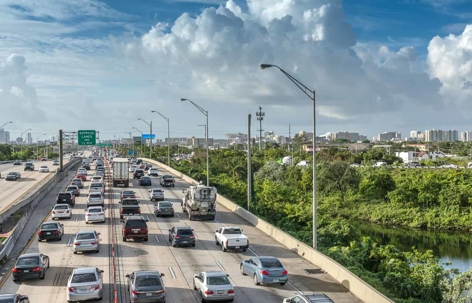Understanding the Risk Factors of Driving During Labor Day Weekend in Florida
When Labor Day weekend rolls around, it’s easy to get caught up in the excitement—whether it’s heading to the beach, a backyard barbecue, or just making that last summer trip. But while the holiday brings fun, it also means more cars on the road and a higher chance for things to go wrong. In Florida, this busy weekend comes with its own set of challenges that drivers need to be aware of, especially if you want to stay safe or avoid serious legal trouble.
Identifying Key Risk Factors
One of the biggest dangers during Labor Day weekend is drunk driving. Holiday celebrations often involve alcohol, and unfortunately, that means more impaired drivers on the road. The National Highway Traffic Safety Administration reports a sharp rise in alcohol-related accidents during holiday weekends, and Labor Day is no exception.
Add to that the heavy traffic. Roads get crowded as families hit the highway for trips or head home after a getaway. Some areas like Miami-Dade, Broward, and Hillsborough counties see particularly high accident rates during this time. Knowing when and where traffic spikes can help you stay alert and avoid risky situations.
Weather Conditions
Florida’s weather is another wildcard. Labor Day falls right in the middle of hurricane season, and storms or heavy rain can quickly turn the roads dangerous. Thunderstorms reduce visibility and make roads slippery—already tricky when traffic is heavy and some drivers aren’t sober.
Storms have caused major travel disruptions before. Remember Hurricane Dorian in 2019? It forced evacuations and left many travelers stuck or rushing to change plans. Keeping an eye on the weather and being ready to adjust your travel is critical to staying safe.
Florida’s Traffic Patterns Over Labor Day Weekend
Increased Tourist Activity
Florida is a top destination for tourists, and during Labor Day weekend, that means even more vehicles clogging the roads. Visitors flock to popular spots like Orlando’s theme parks or Miami’s beaches, creating heavy congestion. Tourists often don’t know local roads well, which can cause confusion and accidents.
For locals, this means longer commutes and the need to be extra patient. For everyone, it’s smart to plan ahead, leave extra travel time, and watch for distracted drivers who might be unfamiliar with the area.
Major Highways and Routes
Some highways get particularly jammed on Labor Day weekend. Interstate 4 (I-4), which connects Tampa and Daytona Beach, I-95 running along the coast, and Florida’s Turnpike often see major backups. Accidents or breakdowns here can cause hours of delays.
Checking real-time traffic apps and maps before you hit the road can save you from getting stuck. Avoiding peak travel times or finding alternative routes can make your trip safer and less stressful.
Safety Precautions for Drivers in Florida
Driving Safety Tips
With more cars, bad weather, and the temptation to celebrate with drinks, you need to be extra cautious on Labor Day weekend. Driving sober is the most important step to avoid accidents—and law enforcement is watching closely. There are usually sobriety checkpoints set up to catch impaired drivers.
Also, stay alert. Don’t use your phone while driving, keep a safe distance from other cars, and obey speed limits. Defensive driving can help you avoid crashes when traffic is unpredictable.
Vehicle Preparation
Before heading out, give your vehicle a quick check. Make sure tires have enough pressure and tread, brakes work well, and all lights and signals are functioning. Rain and darkness can make it harder for others to see you, so this is especially important.
It’s also smart to keep an emergency kit in your car—things like a flashlight, first aid supplies, and some snacks and water. Being prepared can make a big difference if something unexpected happens.
Law Enforcement and Policy Measures
Traffic Law Enforcement
During Labor Day weekend, you’ll probably notice more police on the roads. They’re focused on stopping drunk and reckless driving, which are top causes of accidents. Campaigns like “Drive Sober or Get Pulled Over” are in full swing to remind drivers of the risks.
Following the rules and cooperating with law enforcement can help you avoid trouble. Their efforts aim to keep everyone safer, but they also mean penalties for those caught breaking the law.
Recent Policy Changes
Florida has been tightening traffic laws, especially around impaired and distracted driving. Penalties are getting stricter, with heavier fines and tougher consequences. These changes are designed to encourage safer driving habits, particularly during busy travel times like holidays.
Being aware of these updates can help you avoid costly mistakes and keep your driving record clean.
Case Studies and Statistical Trends
Notable Accidents and Lessons Learned
Looking back at accidents over past Labor Day weekends shows how risky the combination of heavy traffic, speeding, and impaired driving can be. High-profile crashes along busy highways like I-95 remind us why it’s so important to stay focused and sober behind the wheel.
These stories aren’t just warnings—they’re lessons. They show why enforcing traffic laws and staying alert on the road matter so much.
Statistical Analysis
Data shows that despite ongoing efforts, Florida still sees a higher rate of accidents during Labor Day weekend compared to national averages. Tourist-heavy areas and busy highways are hotspots for crashes, injuries, and sadly, fatalities.
Understanding these patterns helps everyone—from drivers to law enforcement—focus on prevention and safer roads.
Stay Safe on Florida Roads This Labor Day Weekend
Knowing what makes Labor Day weekend risky in Florida is just the start. Staying sober, driving carefully, checking your vehicle, and keeping up with traffic laws can make a real difference for you and your loved ones. If you find yourself facing legal issues after a traffic incident, The Florida Law Group in Tampa is here to help you protect your rights and navigate the process.
Don’t wait—call us at (833) 899-0310 for support and guidance this holiday season.

